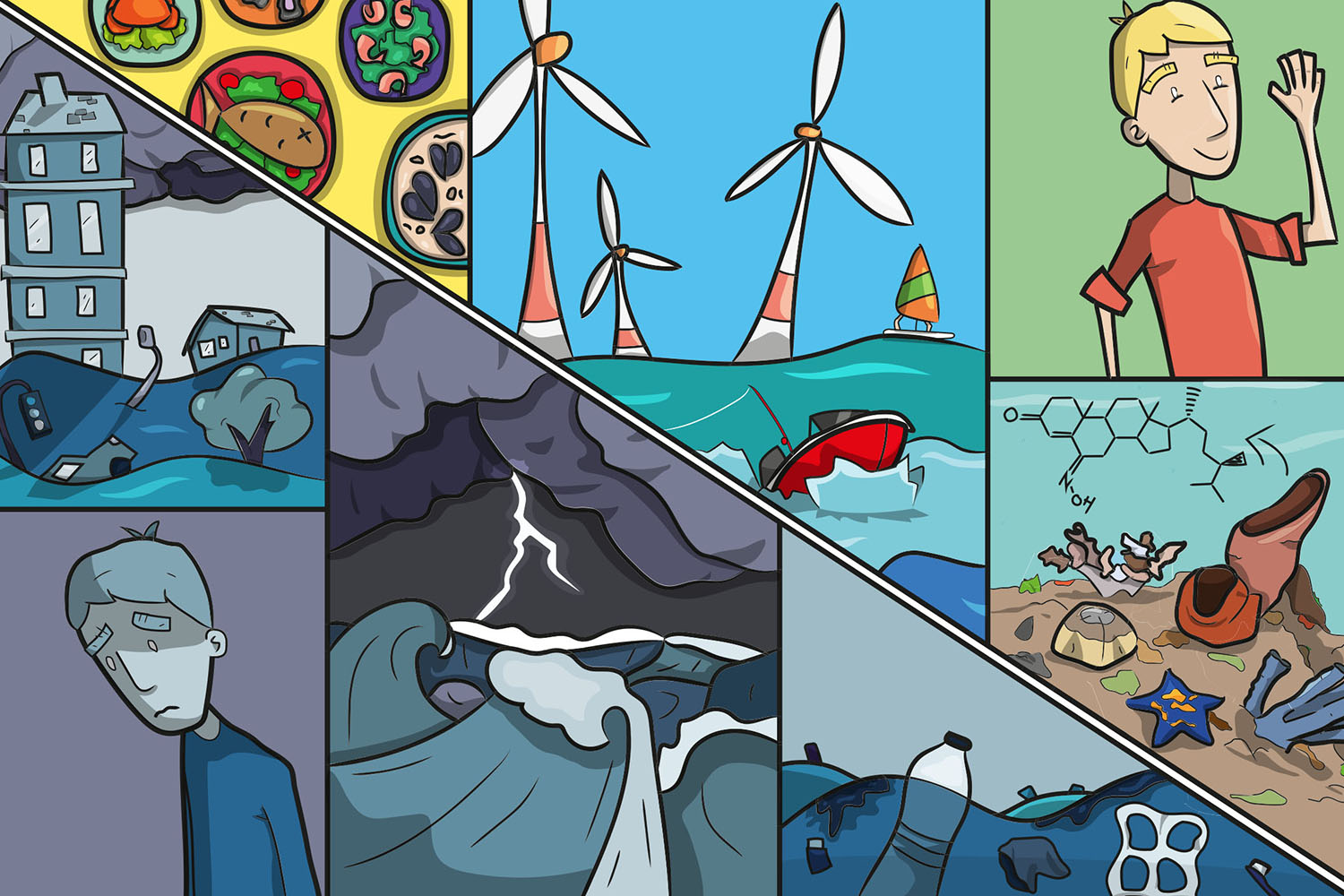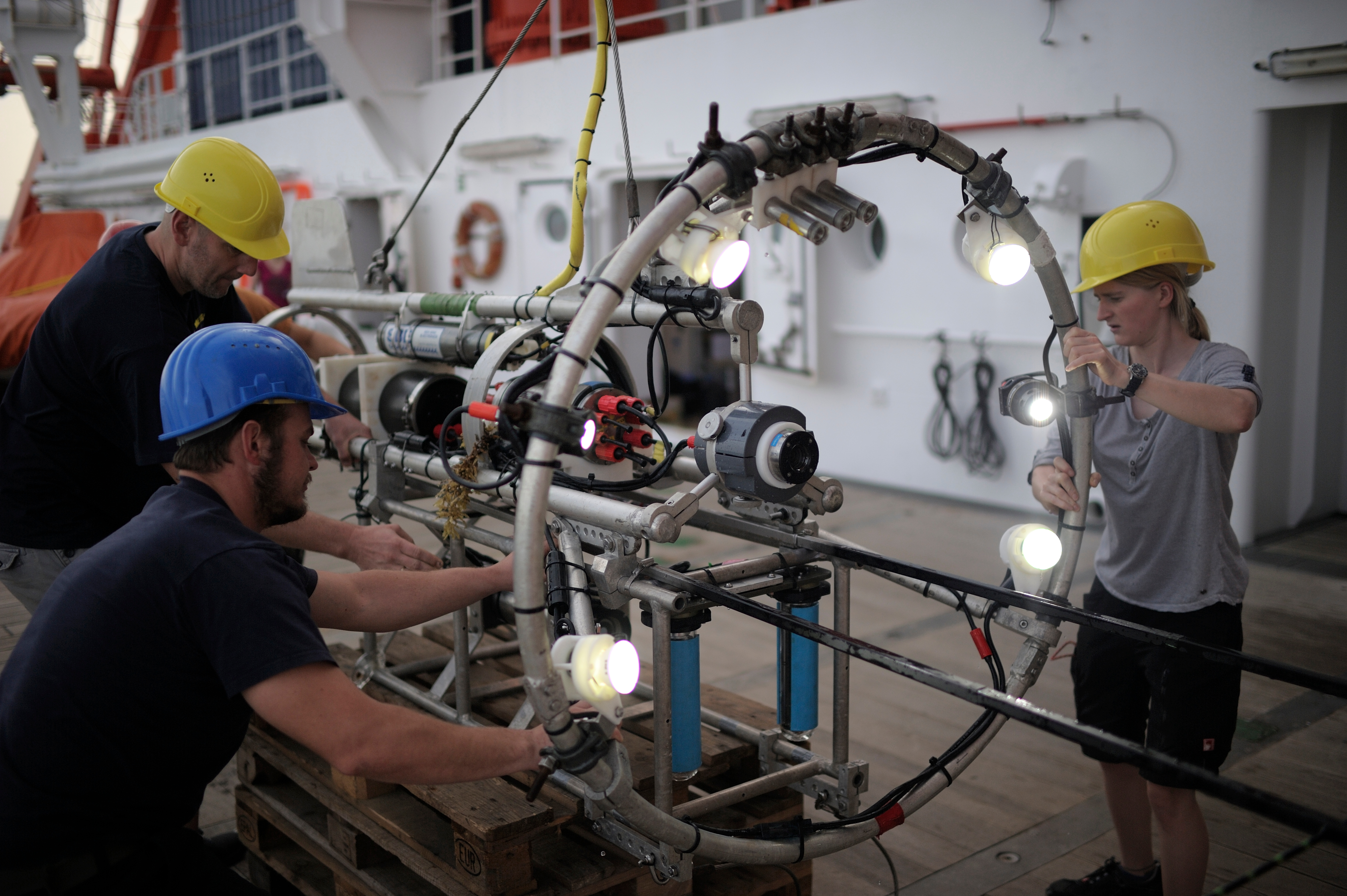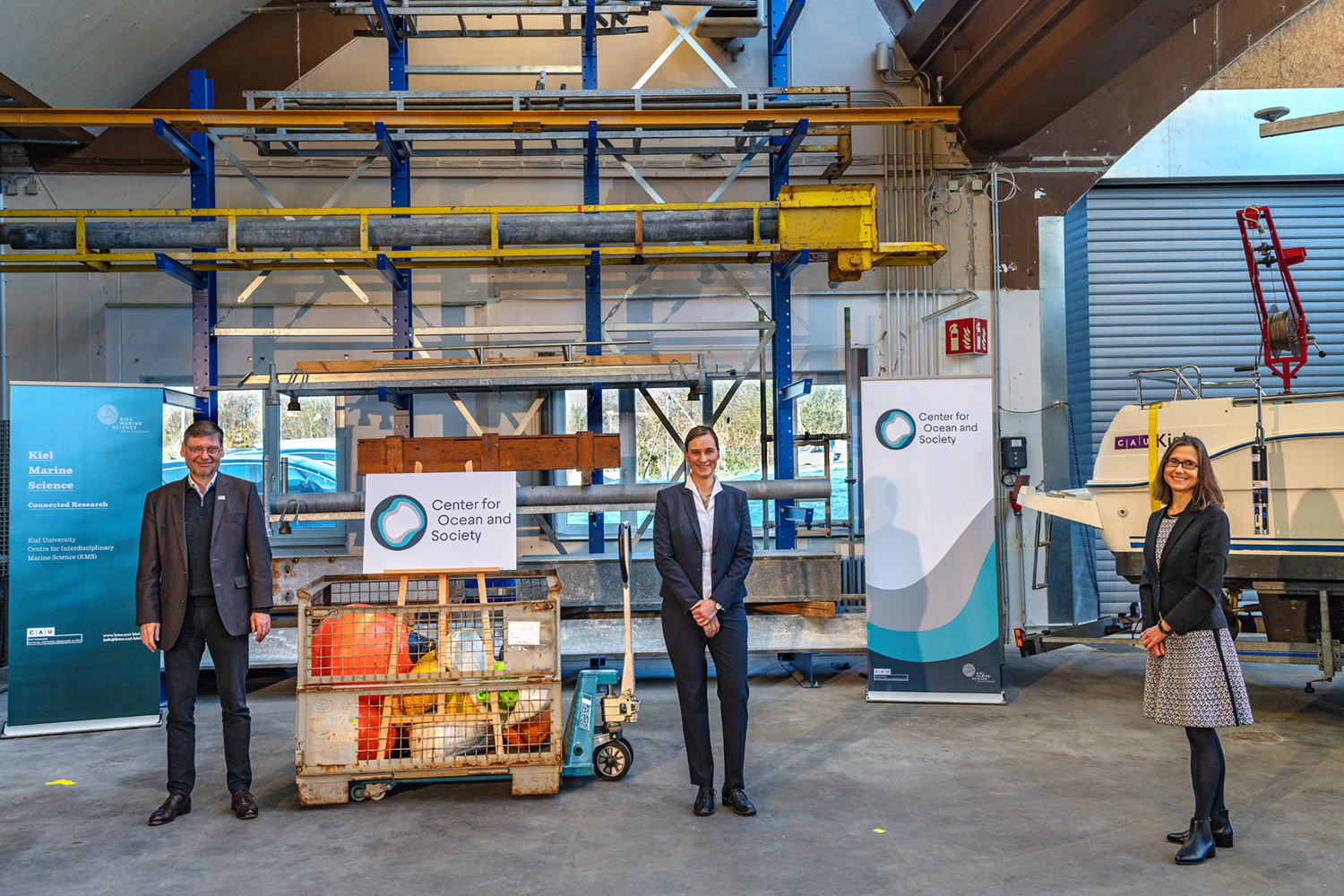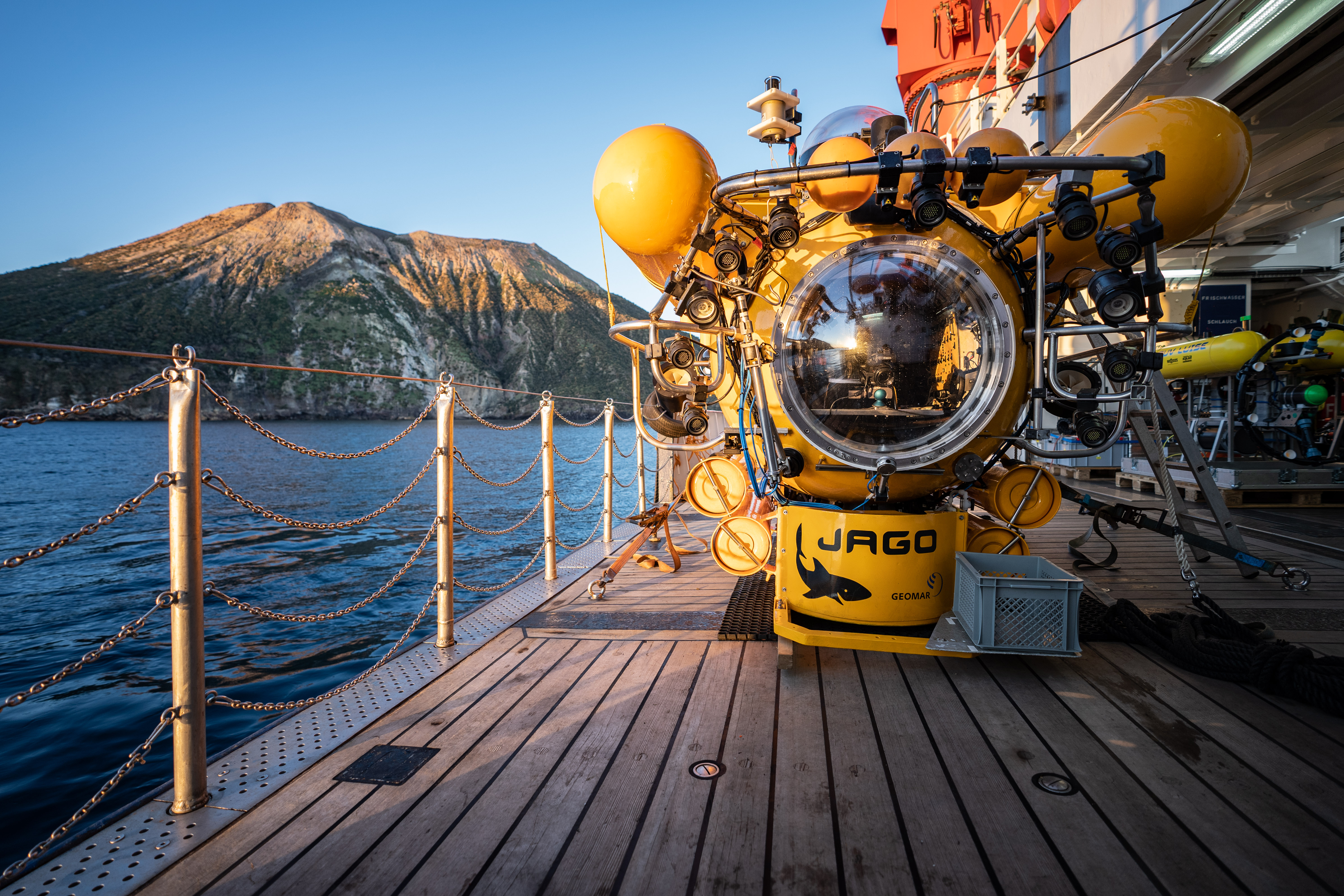A healthy environment is what many people want in their living environment. However, the seas and oceans are not so much in our focus, although they offer recreation and provide us, among other things, with oxygen and food. In recent years it has also become clear that the ocean is under pressure in many ways, and that its "health" is being threatened. Increasing pollution, global overfishing, but also warming and acidification are adversely affecting the ocean, the largest ecosystem of our planet, and in some cases causing extensive damage.
But how can we stop these processes so that marine ecosystems can recover? This question has been the focus of the initiatives 'Ocean Health' (led by Prof. Ute Hentschel, GEOMAR) and 'Ocean Recovery' (led by Prof. Anja Engel, GEOMAR) of the Cluster of Excellence "The Future Ocean" and was the basis for the symposium "Integrated Science for Future Ocean Health and Recovery" in Kiel in 2018. In the follow-up workshop, more than 30 international scientists from various disciplines and other stakeholders from around the world met to discuss options for the future. Their recommendations have now been published in an article in the international journal One Earth.
"The protection of the ocean and the restoration of its health is not only one of the UN Sustainable Development Goals (SDGs) but also coming into the focus of international politics, as human activities increasingly threaten the ocean ecosystem," explains Dr. Andrea Franke, first author of the publication. "But when is the ocean healthy? So far, it has been difficult to agree on a common ocean health definition. Therefore, our international team has developed an operational management framework to assess the health of the ocean. Therefore, we have not only taken empirical but also normative aspects into account, which are in line with the idea of 'strong sustainability'," Franke continues.
"When developing measures to ensure the sustainable use and protection of the ocean and its habitats, and to help restore already severely degraded marine ecosystems, it must first be clear what we actually mean by a 'healthy ocean'", states Dr. Enno Prigge, co-author of the article from GEOMAR. "A transdisciplinary framework supported by several actors is not only necessary to clarify the concept of 'ocean health'. It is also essential for the development and implementation of more active measures to restore this and to maintain the numerous positive interactions between healthy oceans and the health and well-being of us humans," Prigge continues.
In this sense, the UN SDG 14 "Life below water" and SDG 3 "Good health and well-being" should be considered and implemented together. "A healthy ocean is an important basis for the health and well-being of people", is the message of the interdisciplinary team. On an international basis, there are already some transdisciplinary approaches to bring together and bundle expertise from very different areas. This topic is also taken up in a recently published report of the European Marine Board entitled "Policy Needs for Oceans and Human Health". "Science, society, industry and politics must work together in order to initiate active measures to restore ocean health. To protect the ocean and to find solutions for its sustainable use, transdisciplinary approaches are key," concluded Dr. Franke.
Scientific paper:
Franke, A., T. Blenckner, C. M. Duarte, K. Ott, L. E. Fleming, A. Antia, T. B.H. Reusch, C. Bertram, J. Hein, U. Kronfeld-Goharani, J. Dierking, A. Kuhn, C. Sato, E. van Doorn, M. Wall, M. Schartau, R. Karez, L. Crowder, D. Keller, A. Engel, U. Hentschel, and E. Prigge, 2020: Operationalizing Ocean Health: Toward Integrated Research on Ocean Health and Recovery to Achieve Ocean Sustainability. One Earth 2, https://doi.org/10.1016/j.oneear.2020.05.013
European Marine Board. Policy Needs for Oceans and Human Health. European Marine Board. EMB Policy Brief N°. 8, May 2020. ISSN: 0778-3590 ISBN: 9789492043962 DOI: 10.5281/zenodo.3822099 (https://www.marineboard.eu/sites/marineboard.eu/files/public/publication/EMB_PB8_Policy_Needs_v3_web.pdf)
Contact:
Dr. Andreas Villwock (GEOMAR, Communication & Media),
Phone: +49 -431 600-2802
presse@geomar.de
…



